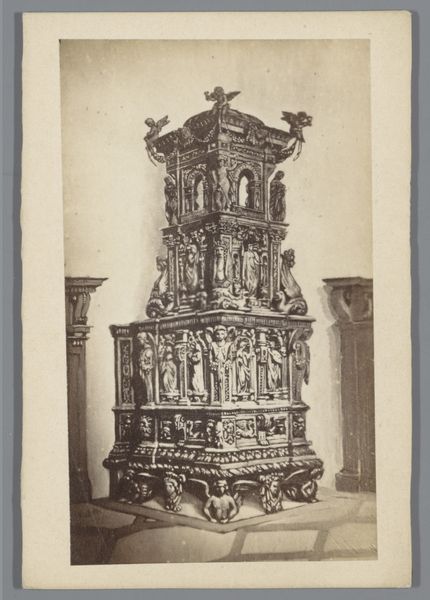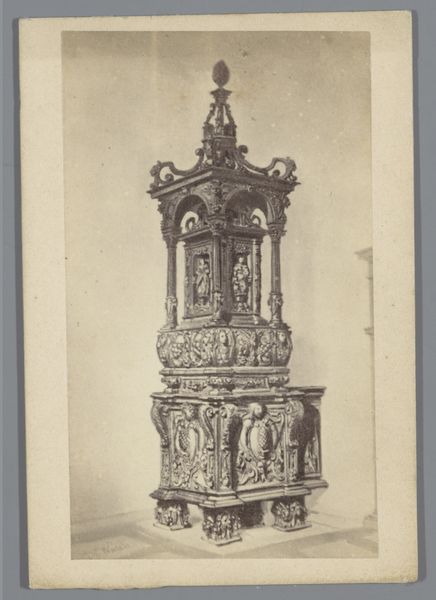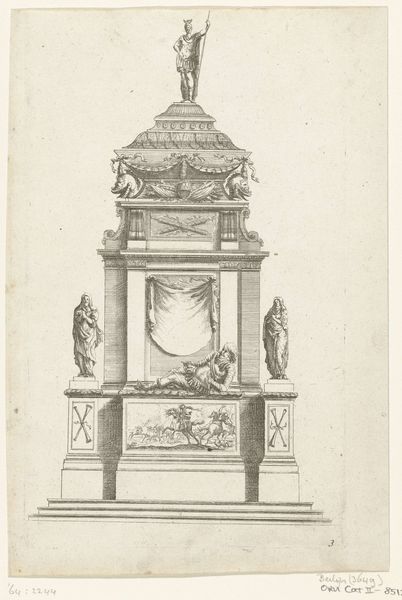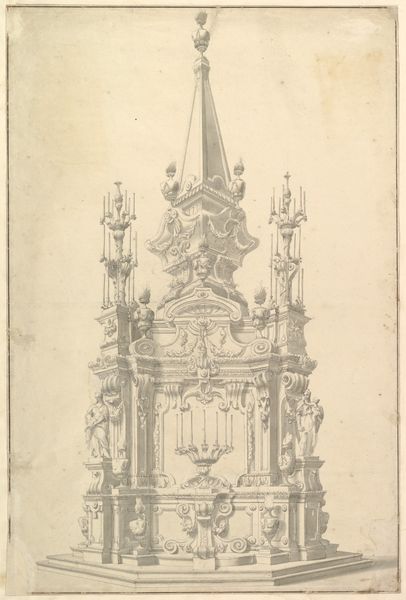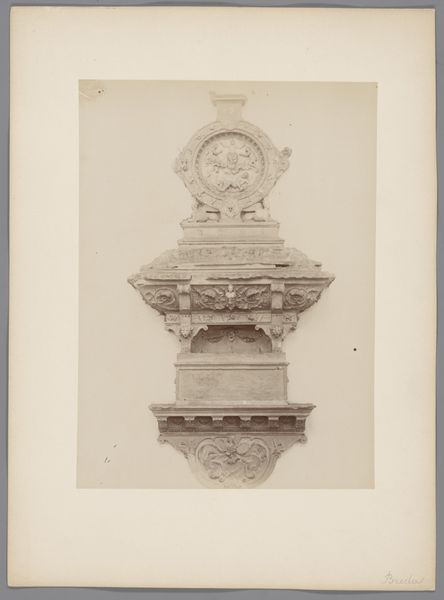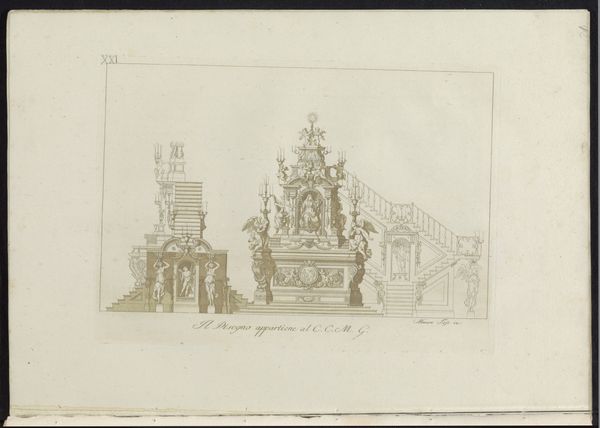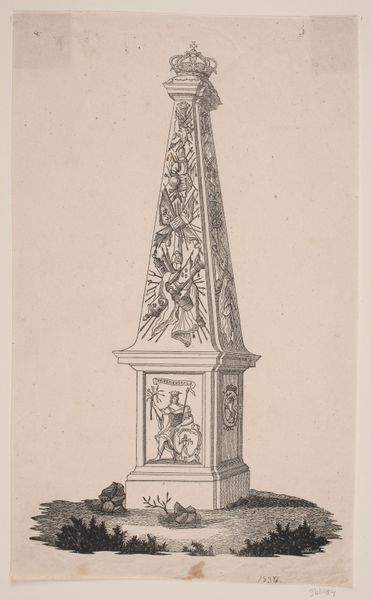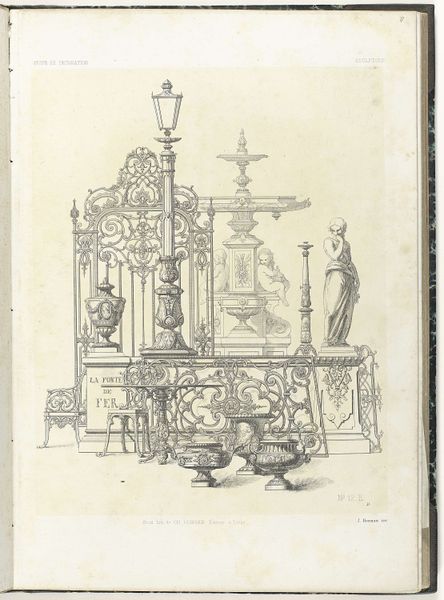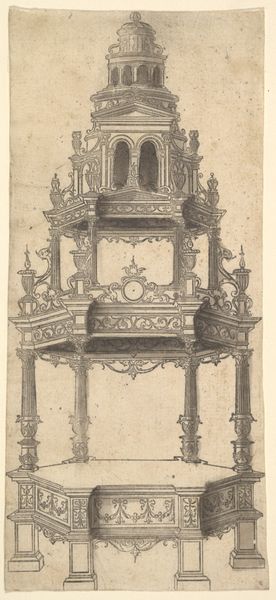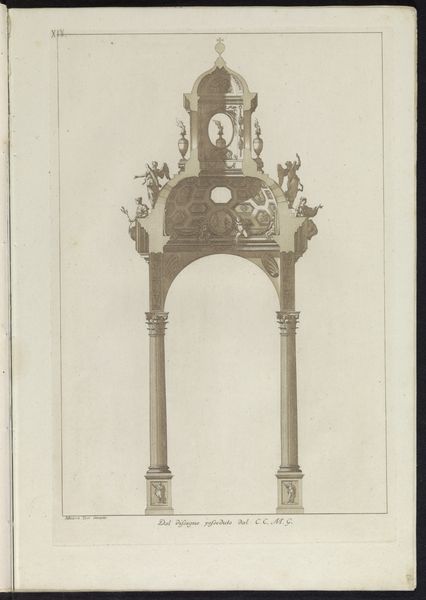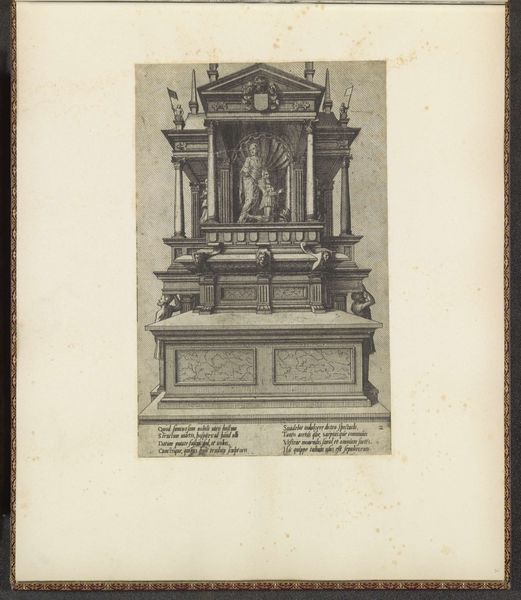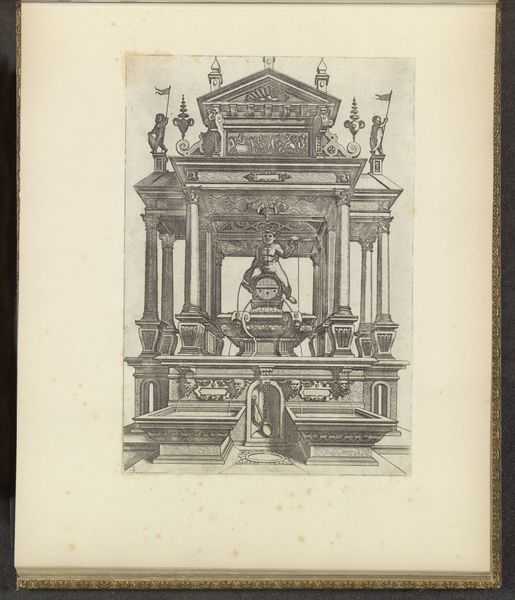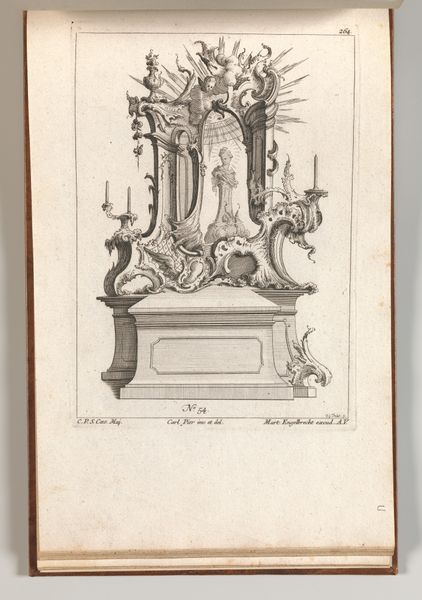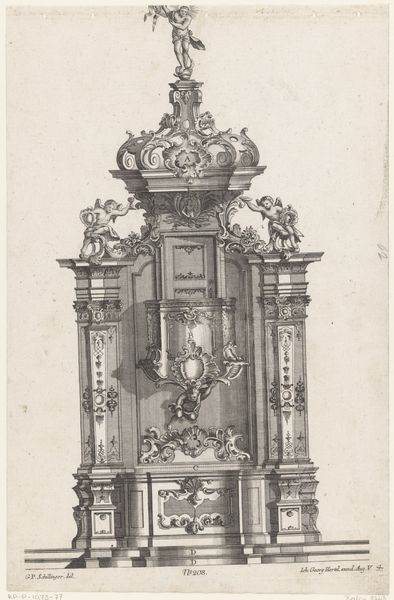
Fotoreproductie van een prent waarop een reliekhouder is afgebeeld 1855 - 1885
0:00
0:00
#
aged paper
#
toned paper
#
light pencil work
#
sketch book
#
personal sketchbook
#
pen-ink sketch
#
pen and pencil
#
sketchbook drawing
#
watercolour illustration
#
sketchbook art
Dimensions: height 92 mm, width 64 mm
Copyright: Rijks Museum: Open Domain
Editor: This is a photogravure reproduction of a drawing of a reliquary, dating to sometime between 1855 and 1885, by Ferdinand Brauer. The amount of detail captured is really striking! What strikes you when you look at this image? Curator: Well, first it brings to mind the burgeoning 19th-century interest in medieval and Renaissance art. Consider the rise of museums during this period. How did exhibiting objects like reliquaries change their function? No longer solely devotional objects, they also became symbols of national identity, of cultural heritage. Editor: So you are saying the cultural value shifts? Curator: Precisely! Before, it’s primarily for a spiritual audience. Now, a secular, public one. Look at the figures topping the reliquary, hammering away. Do they evoke an ideal of craftsmanship? Are they allegories of labour in service of both art and the Church? Editor: That's fascinating, thinking about labour. Did photography also change how these objects were viewed by democratizing their representation? Curator: An interesting angle! Yes, photography certainly made such objects accessible to a wider audience, influencing taste and spurring further interest. Photography became a powerful tool in the construction and dissemination of cultural narratives, didn’t it? Editor: Definitely gave me something to consider about what art means as objects change context! Thanks. Curator: My pleasure. Considering its historical and cultural situation certainly brings new light.
Comments
No comments
Be the first to comment and join the conversation on the ultimate creative platform.
